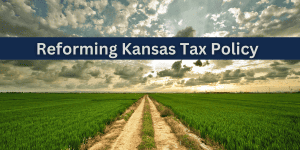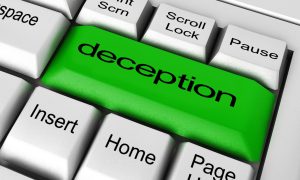Kansas should follow the lead of neighboring states and enact sweeping tax relief and boost the economy next year, according to a report released by Kansas Policy Institute (KPI) and The Buckeye Institute in Ohio, entitled “Reforming Kansas Tax Policy.” The authors argue that the Sunflower State needs tax reform to revive its economy and stay competitive with its regional neighbors.
 The report notes Tax Foundation research showing Kansas’ corporate income tax rate of 7.0% (6.5% in 2024) is significantly higher than Oklahoma and Missouri (4% each), Colorado (4.4%), Arkansas (5.3%), and Texas, with no corporate income tax. Only Nebraska ($5,580, plus 7.25% over $100,000) and Iowa (8.4%) have higher rates in the region, and Hawkeye State Governor Kim Reynolds is proposing business tax cuts and elimination of the state’s income tax by the end of her term in 2027. Earlier this year, Kansas Governor Laura Kelly vetoed Senate Bill 169, which would have provided $1.4 billion in a tax relief package for Kansas families and businesses. Kelly’s veto was narrowly sustained when three Republican senators sided with her in a fit of political pettiness.
The report notes Tax Foundation research showing Kansas’ corporate income tax rate of 7.0% (6.5% in 2024) is significantly higher than Oklahoma and Missouri (4% each), Colorado (4.4%), Arkansas (5.3%), and Texas, with no corporate income tax. Only Nebraska ($5,580, plus 7.25% over $100,000) and Iowa (8.4%) have higher rates in the region, and Hawkeye State Governor Kim Reynolds is proposing business tax cuts and elimination of the state’s income tax by the end of her term in 2027. Earlier this year, Kansas Governor Laura Kelly vetoed Senate Bill 169, which would have provided $1.4 billion in a tax relief package for Kansas families and businesses. Kelly’s veto was narrowly sustained when three Republican senators sided with her in a fit of political pettiness.
Authors Zachary D. Cady, Rea S. Hederman Jr., and Trevor Lewis of The Buckeye Institute recommend broad-based tax reduction for Kansas in 2024. The package would include a $370 million personal income tax cut and reductions of $50 million each in corporate and sales taxes. The trio discuss the economic expansion resulting from the tax reform:
“Under this scenario, the state GDP (gross domestic product) increases by $390 million (2012 dollars) in 2024, investment spending rises by $220 million, consumer spending goes up by $180 million, and the economy adds 1,000 jobs in the same year.”
That scenario is similar to SB 169 and would still have left Kansas with a $4.5 billion surplus after four years of implementation, according to a budget projection from the Kansas Legislative Research Department.
The “Reforming Kansas Tax Policy” report also shows that the one-time rebate favored by Governor Kelly would have a much smaller economic impact.
Ganon Evans, a policy analyst at KPI, says taxpayers are past due relief:
“Kansas families have struggled financially through COVID-19 into high inflation and are still trying to stay afloat amidst high food prices and poor job growth in the state. Tax reform helps put more money back in these families’ wallets, with which they support their local communities.”



